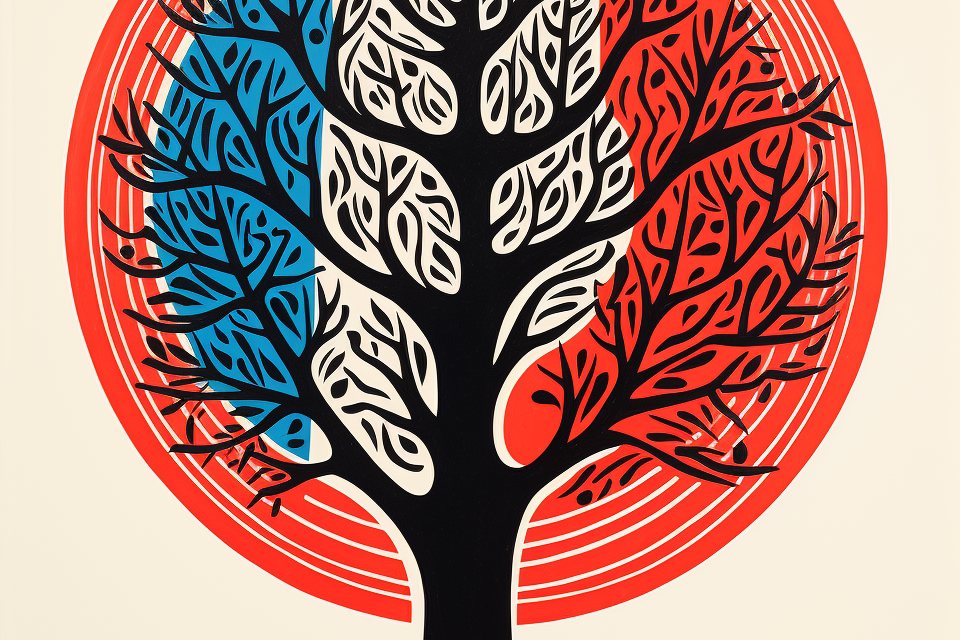The Notion of an Abundant Mindset

The notion of an abundant mindset is both enticing and transformative. Rooted in the belief that there’s enough success, happiness, and wealth for everyone, this mindset alters how you engage with the world. Imagine sailing on an expansive ocean filled with possibilities, rather than being confined to a tiny pond with scarce resources. That’s the liberating experience of embracing an abundance mindset.
Contrasting an Abundance Mindset with a Scarcity Mindset
You might be curious about how this contrasts with a scarcity mindset. Scarcity thinking is the antithesis of abundant thinking. Based on the notion that resources are limited, it breeds anxiety, fear, and a narrow outlook. Think of it as constantly looking over your shoulder, always competing, and never fully relishing your wins due to the fear they’ll be fleeting. It’s akin to trying to fill a leaky bucket; no matter how much you pour in, it never feels enough.
The Importance of Adopting an Abundant Mindset
Why is adopting an abundant mindset especially important in today’s fast-paced world? The answer is quite simple. The lens you use to view the world shapes your reality, affecting how you tackle challenges, interact with others, and even perceive yourself. An abundant viewpoint not only brightens your outlook but also unlocks opportunities, nurtures meaningful relationships, and fosters a sense of peace and well-being.
Exploring Abundant Thinking
In the upcoming sections, we’ll delve into the historical context and philosophical underpinnings of abundant thinking. You’ll explore its psychological foundations and see how it can enhance various aspects of your life—from personal connections to career growth. We’ll also share practical strategies for developing an abundant mindset, and hear from experts who’ve successfully made this shift. And, to offer a balanced perspective, we’ll discuss critiques and challenges associated with this ideology.
In a nutshell, this comprehensive guide aims to be your go-to resource for understanding and adopting an abundant mindset. Get ready to challenge your current beliefs and embark on an enriching journey toward a more enlightened existence.
The Historical and Cultural Roots of Abundant Thinking
The concept of an abundant mindset didn’t just materialize out of thin air; it has roots in various philosophical systems and cultural perspectives. Stoicism and Eastern philosophies like Taoism advocate for a boundless universe where personal growth isn’t a zero-sum game. These traditions emphasize the importance of adopting a worldview that treasures life’s richness over its constraints.
The interpretation of abundance varies between cultures. Many Eastern traditions associate it with spiritual fulfillment and the interconnectedness of all things. The idea is that abundance isn’t just material wealth but also encompasses spiritual vitality, emotional balance, and robust community ties. Western societies often equate abundance with material prosperity and resource acquisition. However, the core principle remains the same: a focus on opportunities rather than limitations. Across different cultures, the principles of abundant thinking have surfaced, leading to breakthroughs, societal advancements, and personal success narratives.
Abundance Mindset in Action
When it comes to individual triumphs, consider how an abundance mindset has been foundational for numerous historical figures. Take Thomas Edison, for example. Instead of being deterred by failure, Edison viewed each setback as a lesson, famously declaring, “I have not failed. I’ve just found 10,000 ways that won’t work.” Consider also Eleanor Roosevelt, who believed that those who dare to dream shape the future. These are individuals who saw potential where others only perceived obstacles.
As you can see, the idea of an abundant mindset isn’t a fleeting trend; it has deep historical and cultural roots. Understanding this context enriches the concept and allows for its more effective application in our everyday lives.
The Psychological Foundations of an Abundance Mindset
The landscape of psychology offers compelling insights into the anatomy of an abundance mindset. The role of cognitive frameworks in shaping our life perspective is pivotal. Take Cognitive Behavioral Therapy (CBT) as a case in point: it posits that our thoughts significantly influence our feelings and behaviors. Individuals with an abundance mindset engage in positive self-talk and constructive mental patterns, which leads to richer life experiences.
Positivity and optimism are foundational pillars of a prosperous mindset. Numerous studies affirm that optimistic individuals tend to be healthier, happier, and more successful. Positive thinking doesn’t mean ignoring life’s challenges; instead, it involves addressing them constructively. Optimists see setbacks as temporary and specific rather than pervasive and permanent. This broadens your perspective, enabling you to see not just the obstacle but also the myriad ways to navigate around it.
Mindfulness also plays a crucial role in fostering an abundant attitude. Rooted in ancient Eastern philosophies and recently backed by modern psychology, mindfulness encourages you to be fully present. When you are mindful, your focus shifts from what you lack to the abundance that surrounds you.
Transitioning from Scarcity to Abundance
While discussing abundance, it’s equally vital to consider its antithesis—the scarcity mindset. Viewing the world through scarcity-tinted lenses clouds your judgment with limitations and competition. Overcoming this requires more than just positive affirmations; it calls for a wholesale reconfiguration of your mental habits. Cognitive reframing techniques are particularly beneficial here. Question each scarcity-oriented thought: Is it based on facts or assumptions? What evidence supports or contradicts it? These probing questions promote a mental transition from scarcity to abundance.
Grasping the psychological intricacies of an abundance mindset enhances both its complexity and applicability. By understanding the interplay of cognitive frameworks, optimism, mindfulness, and scarcity considerations, we deepen our insight into why some see life as a playground of limitless possibilities, while others perceive only constraints. This knowledge makes the concept of abundance not just intriguing but actionable. Equipped with this understanding, you can actively work to transform your mindset, and consequently, your life.
The Impact of an Abundance Mindset in Various Life Areas
The influence of an abundance mindset isn’t confined to one area of life; it pervades all aspects, like a golden thread woven into your very existence.
Personal Relationships
When applied to personal relationships, an abundant outlook is transformative. It shifts you from a zero-sum mindset to a synergistic space where both parties flourish. This perspective enables you to celebrate the successes and virtues of those around you, without feeling that their achievements diminish yours. In relationships, abundant thinking cultivates emotional generosity, mutual understanding, and a shared commitment to growth.
Professional Sphere
In the professional sphere, an abundance mindset induces a paradigm shift. Colleagues become co-adventurers in a quest for collaborative success rather than competitors. This perspective nurtures a work culture that boosts productivity and sparks innovation. Envision a workplace where everyone believes there’s room for multiple stars—that’s the magic of abundant thinking.
Financial Well-being
In the realm of financial well-being, an abundant perspective changes your entire financial narrative. Instead of worrying about scarcity, you see money as a renewable resource. This mindset propels you to create wealth for both yourself and others, making financial decisions based on opportunity rather than fear.
Personal Fulfillment and Growth
Moreover, consider the role of abundance in personal fulfillment and growth. With an abundant attitude, personal development becomes an ongoing journey, not a final destination. This insatiable curiosity makes life a wondrous and rewarding adventure, each day offering a new chance to evolve.
Appreciating how an abundance mindset infiltrates these varied life elements highlights its transformative power. It’s more than just a thought pattern; it’s a holistic approach to life that has the potential to elevate your relationships, career, financial status, and overall well-being. Its universal applicability acts like a master key, unlocking numerous doors in every facet of your life.
Cultivating an Abundance Mindset
So, what’s the road map to cultivating an abundance mindset? The journey involves a set of practices, each foundational to this empowering mental architecture.
Goal Setting and Visualization
Goal setting and visualization serve as key cornerstones. By setting ambitious goals and mentally experiencing their achievement, you reinforce your belief in your capacity to generate abundance. Visualization intensifies this by making your goals palpable, sparking a domino effect of positive thoughts and actions.
The Power of Gratitude
Next is the power of gratitude. Focusing on current blessings might seem counterintuitive when discussing future-focused abundance. Yet, acknowledging the richness in your life now—be it relationships, health, or simple joys—prepares you for future prosperity.
Generosity
Generosity is also pivotal. It underscores the basic premise of abundant thinking—that there’s enough to go around. Whether it’s sharing knowledge, emotional support, or engaging in charitable work, giving creates a virtuous cycle. It enhances not only others’ lives but also reinforces your own sense of abundance.
Affirmations and Positive Self-Talk
Daily affirmations and positive self-talk can help you recalibrate your mindset from scarcity to abundance. Tailored to your unique challenges and repeated consistently, these affirmations slowly reshape your subconscious thoughts.
Embracing Change and Challenges
Lastly, embracing change and challenges is indispensable. Consider obstacles as stepping stones rather than roadblocks. This problem-solving approach embodies the core attributes of abundant thinking. Whether in professional setbacks or personal challenges, view them as growth opportunities.
Cultivating an abundance mindset isn’t a one-off task but a lifelong endeavor. It involves a dedication to continually invest in yourself, reshape your perspectives, and foster positivity—regardless of external circumstances. These strategies offer a comprehensive toolkit, facilitating your transition from a life of limitations to one filled with potential.
The Real-World Implications of an Abundance Mindset
The abundance mindset isn’t just a theoretical concept; it has tangible, real-world implications that have propelled both individual and societal achievement. Let’s delve into some of these success stories to understand how adopting an abundance attitude can reshape your life.
Individual Success Stories
We’ve all heard tales of individuals who started from humble beginnings and went on to accomplish remarkable feats. The common denominator here is an abundance mindset. Consider Oprah Winfrey, for instance. She often attributes her meteoric rise in media to an abundant mindset, despite facing poverty and numerous obstacles. Oprah saw potential rather than limitations. This perspective helped her shatter barriers, not just for herself but also for countless others whose voices she amplified through her platform.
Business Success Stories
Businesses can glean insights from this mindset too. Take Google’s philosophy on information access as a case in point. The idea of offering free access to information was groundbreaking when Google first launched its search engine. Skeptics questioned its profitability, yet founders Larry Page and Sergey Brin held an abundance viewpoint. They believed that freely accessible knowledge would unlock more opportunities for everyone, including Google. Today, their vision has proven to be not just profitable but transformative for how we engage with information.
Societal Transformation
But can abundance thinking alter the trajectory of an entire society? The answer is a resounding yes. Look at Medellín, Colombia, for example. Once notorious as the “murder capital of the world,” Medellín is now hailed for its innovation and quality of life. Community leaders invested in public education, libraries, and local businesses, shifting from a scarcity mindset to one of collective abundance. This pivot has been central to Medellín’s incredible transformation. Residents now view themselves as contributors to communal well-being rather than competitors for scarce resources.
These examples offer compelling evidence that an abundance mindset plays a pivotal role in achieving success, whether for an individual, a business, or an entire community. These are not isolated instances but rather facets of an overarching principle. When we approach life with an abundance mindset, we not only elevate our own existence but also act as catalysts for positive change in the world around us.
Pitfalls of the Abundance Mindset
While the abundance mindset comes with numerous advantages, it’s not devoid of pitfalls. It’s crucial to understand these nuances if you’re committed to truly adopting an abundance mindset.
The Phenomenon of Toxic Positivity
A major obstacle is the phenomenon psychologists label ‘toxic positivity’—the overemphasis on positive thinking to the point where it dismisses genuine emotional experiences. An abundance mindset should never gloss over real challenges or emotions. Ignoring problems won’t make them vanish; it merely offers a superficial solution.
Critiques and Misconceptions
Now, let’s tackle some critiques. A common misconception is that abundance thinking is just another form of escapism or denial. Critics argue that focusing solely on abundance overlooks the ‘real-world’ constraints we all face. This, however, is a misunderstanding. An abundance mindset doesn’t neglect limitations; it inspires us to think creatively to navigate around them. Instead of agonizing over how to divide an existing, smaller pie, it prompts us to ask, ‘How can we make the pie bigger for everyone?’
Finding the Sweet Spot
So how do you find the sweet spot between abundance thinking and practical considerations? The first steps are self-awareness and critical thinking. If you catch yourself dismissing challenges with overly positive statements, pause and assess the situation. Then, reframe these challenges as opportunities for growth without ignoring existing constraints. The aim is to combine optimism with practical action. Dream big, but be ready to put in the sweat to turn those lofty aspirations into tangible outcomes.
Navigating Challenges Creatively
In summary, although the abundance mindset has its challenges, these can often be navigated through a balanced, intelligent approach. It’s not about dismissing our limitations but about managing them creatively while remaining committed to growth and betterment. Bear this in mind as you embark on your journey toward a richer life.
Tools and Resources for Developing an Abundant Mindset
Personal growth can feel like navigating a dense forest without a map. But fret not; a myriad of tools and resources are available to guide you in developing an abundant mindset.
Books and Podcasts
When it comes to books, titles like Stephen Covey’s ‘The 7 Habits of Highly Effective People’ and Carol S. Dweck’s ‘Mindset: The New Psychology of Success’ are go-to references. Podcasts like ‘The Tony Robbins Podcast’ and ‘The Tim Ferriss Show’ frequently delve into themes of abundance and personal development, featuring eminent authors and entrepreneurs who share invaluable advice.
Experiential Learning
Beyond the written and spoken word, experiential learning can be transformative. Consider participating in workshops or courses focused on abundance, goal-setting, or positive psychology. Various life coaches specialize in these domains and offer tailored guidance to meet your specific needs.
Online Platforms and Communities
And don’t overlook the digital landscape. A wealth of online platforms and communities are dedicated to fostering an abundant mindset. Websites like ‘Mindvalley’ and apps such as ‘Headspace’ offer courses, guided meditations, and forums where you can engage with others on a similar journey. Social media platforms, like Facebook and Reddit, are also valuable for sharing experiences and learning from others.
In summary, the path to abundance might be deeply personal, but you’re not navigating it alone. A rich ecosystem of tools and resources awaits you. Whether you’re an avid reader, a podcast aficionado, an online course enthusiast, or someone who thrives on personal interaction, there’s something for you. Seize these resources and continue to expand what you believe is possible for you.
Abundance Mindset and its Societal Implications
According to emerging trends and research, the concept of an abundance mindset is not just a popular buzzword but is gaining empirical support in the fields of psychology, neuroscience, and behavioral economics. Studies are increasingly focusing on how an abundance mindset not only influences individual decision-making but also shapes communal behavior. Social experiments and longitudinal studies have started to affirm that an abundance mindset can lead to improved well-being, more effective collaboration, and even sustainable growth. This moves it from being a self-help mantra to something with profound societal implications.
Technology and Online Communities
Technology and online communities are playing a pivotal role in fostering an abundance mindset in the digital age. Online platforms dedicated to personal growth and shared learning aren’t merely repositories of information; they’re catalysts for mental shifts. Virtual workshops, webinars, and even augmented reality experiences are emerging as powerful tools to help people transition from a scarcity mindset to an abundance mindset. These platforms also make it easier to connect with like-minded individuals, which can be instrumental in maintaining this positive outlook.
Social Media’s Double-Edged Sword
Furthermore, social media presents a double-edged sword. While it can perpetuate comparison and a scarcity mindset, there are emerging initiatives focused on sharing uplifting content that promotes abundant thinking. While work is still underway in this area, algorithms are being tweaked to present content that aligns with an optimistic, growth-oriented perspective.
Transformative Societal Ramifications
The long-term societal ramifications of a communal shift toward an abundance mindset could be transformative. When people believe there’s enough for everyone, they’re more inclined to collaborate, invest in sustainable activities, and support policies that aim for fair resource distribution. This could significantly impact how we tackle urgent global challenges like climate change, socioeconomic disparities, and mental health crises.
Benefits and Impacts of an Abundance Mindset
Individuals can reap numerous benefits from adopting an abundance mindset, such as improved emotional, physical, and financial well-being. Cultivating a positive outlook on life can lead to not just greater happiness but also stronger relationships and career success. Considering that our mindset informs our actions, adopting an abundance mindset could be the secret to achieving holistic wellness, building stronger connections, and even driving societal progress.
The Future of Abundant Thinking
Lastly, the future of abundant thinking appears promising, as it becomes a focal point for both personal endeavors and larger societal initiatives. The rise of tech platforms that nurture this mindset, coupled with ongoing research into its long-term benefits, signals a new chapter where abundant thinking may become standard practice. And isn’t that a world worth striving for?
Conclusion: Embracing Abundance
We’ve explored the expansive terrain of the abundance mindset, diving into its psychological foundations and practical applications. A recurring theme is the transformative power of seeing life as a reservoir of opportunities, not just a series of limitations. This isn’t mere optimism; it’s backed by research, expert insights, and lived experiences that confirm the undeniable impact mindset has on our personal and societal well-being.
So what’s holding you back? Mindfulness exercises, vision boards, and the compelling force of gratitude are all tactics for fostering an abundance mindset. These aren’t just tasks to tick off but lifestyle shifts that pave the way for a more enriched, fulfilling life. Commit, don’t just skim. Let’s dismantle the myth that abundance is exclusive to a chosen few. You have just as much agency as anyone else, and your mind is the fertile soil where transformation can sprout.
On a macro level, the implications of an abundance-focused society are vast and inspiring. Imagine communities driven by cooperation instead of competition, where making sustainable choices is the default because people trust in a prosperous future. It’s not just idealistic thinking but a viable path that begins with the individual—you and me—and radiates outward. The more people adopt this mindset, the more society as a whole benefits, influencing collective decisions, policies, and even worldwide initiatives for a better tomorrow.
So, why not begin now? Why not start right here? Immerse yourself in the sea of opportunities that an abundance mindset offers. The water’s inviting, and the treasures are plentiful. Let’s create a ripple effect that alters not just a moment, but a lifetime, and possibly even the course of history. Share your journey, insights, or even challenges in the comments below. Let’s cultivate a culture where abundance is more than a trendy term but a way of living.
Additional Resources
If you’re keen on diving deeper into the transformative power and nuances of an abundance mindset, the following resources can guide you:
- Carol S. Dweck’s “Mindset: The New Psychology of Success” – A foundational book on how mindset impacts success and well-being.
- Stephen R. Covey’s “The 7 Habits of Highly Effective People” – Habit 4, “Think Win-Win,” is particularly relevant to understanding an abundance mentality.
- Mark Manson’s “The Subtle Art of Not Giving a F*ck” – Offers a fresh perspective on prioritizing what truly matters, supporting an abundant mindset in the process.
- “Daring Greatly” by Brené Brown – Explores the role of vulnerability in building an abundance mindset.
- “Abundance: The Future Is Better Than You Think” by Peter H. Diamandis and Steven Kotler – Looks at how technology can pave the way for a future filled with abundance.
- Journal of Positive Psychology – This journal offers numerous articles that delve into the psychological underpinnings of an abundant mindset.
- Eckhart Tolle’s “The Power of Now” – Discusses the significance of mindfulness in fostering an abundant mindset.
- TED Talks: Search for talks on abundance mindset, positive psychology, or related subjects. Speakers like Simon Sinek, Tony Robbins, and Angela Duckworth offer valuable insights.
- David J. Schwartz’s “The Magic of Thinking Big” – An enduring book that champions the idea that you don’t have to settle for less.
- James Clear’s “Atomic Habits” – Though not specifically about an abundance mindset, this book sets the stage for making small changes that result in significant life shifts.
These resources cater to various learning styles, featuring books, academic journals, and multimedia presentations. Whether you’re a skeptic in search of scientific evidence or a believer seeking further wisdom, there’s something here for you. Feel free to explore, ponder, and of course, share your discoveries. Let’s continue nurturing a community that is abundant in more ways than one.



